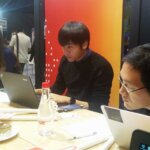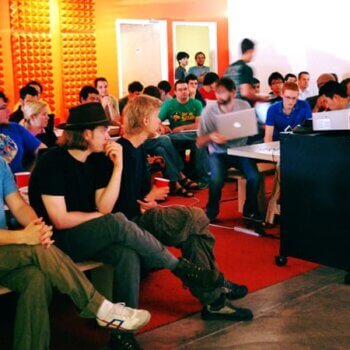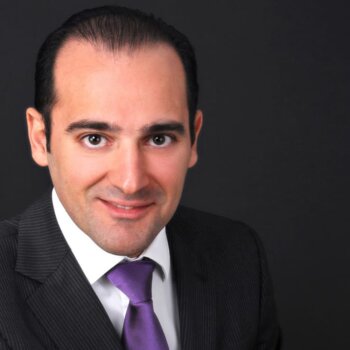(Women on Top in Tech is a series about Women Founders, CEOs, and Leaders in technology. It aims to amplify and bring to the fore diversity in leadership in technology.)
Here is my interview with Roya Mahboob, an Afghan entrepreneur and philanthropist focused on building Digital Literacy for women and children in developing countries. Roya is the CEO & Co-Founder of Digital Citizen Fund.
What makes you do what you do?
Technology and the Internet had a major impact on my life and I believe that technology is not only able to open new realities but also to break down barriers, open up new pathways to building a career and have shown me a bigger world, which is not limited to the border of my country or a domestic life only. By expanding my business across the world and with other nations, I became a part of something bigger than myself. I became a digital global citizen. I made it my mission to provide young girls in Afghanistan and in other conservative nations a door to the rest of the world.
How did you rise in the industry you are in?
With the support of my family, I was able to go to school and quickly became interested in the world of technology and the vast opportunities that it presented. Not satisfied with the just basic knowledge of technology and internet, I was driven to study more and dive deeper. After graduating from university, I reached the first step of my goals when I became the IT director of my university. My work with the university whetted my appetite for more and larger IT projects and opportunities. The next step of my success came in Kabul, where I became a project coordinator for the Ministry of Higher Education IT department. This gave me great experience in the world of technology, after that starting my company Afghan Citadel software with my sister Elaha Mahboob and two other colleagues. However, the hard work, perseverance and determination it took to make it to this stage of my career would not have been enough if I had not had the resources and opportunities to explore the Internet and technology as a teenager.
Why did you take on this role/start this startup especially since this is perhaps a stretch or challenge for you (or viewed as one since you are not the usual leadership demographics)?
In 2010, we started my first software development company because of our desire to see women succeed in the technology industry, I made it a priority to hire women programmers and bloggers. Through the efforts of many of these women, my company thrived and grew and I became one of the first tech female CEO of in Afghanistan.
I have to see the difference that technology and education have made in my life and it is a vision that I share with many women all over the world. The bridge between success and status quo is education and only this will truly bring equality to women all over the world.
As a woman, I had fewer resources and limited access to the funds and loans I needed to move things forward. While facing the struggles that every other CEO faces, whether man or woman, there were also many limiting factors in my culture and barriers that stifled the professional growth I sought so hard to achieve. Yet these things can indeed be overcome and I believe that every woman should have that chance.
Although I dealt with many challenges and limiting treatment in my culture, but the opportunities that I had through the avenue of technology helped to break down the barriers and open up new pathways for success in my career. It is this truth that has led me to the beliefs I embrace today.
Do you have a mentor that you look up to in your industries or did you look for one or how did that work?
First I learned a lot of things from Heart – Incubator that was managed by IBM through TFBSO and we had IBM advisor/mentor who helped us to start our business.
Second, My former business partner Francisco Rulli who was my first investor and partner in the business.
How did you make a match if you and how did you end up being mentored
by him?
We graduated from Herat-Incubator and they are not longer work in the Afghanistan. But I am still friend with Francisco and we are working together at Digital Citizen Fund.
Now as a leader how do you spot, develop, keep, grow and support your talent?
For us increase the capacity of the employees with providing training and coaching them has been important. We care about performances of individuals and teams and help them to be visible. Building talent in the team is an investment for better performance of the future.
Do you consciously or unconsciously support diversity and why?
Yes, I consciously support diversity in my organization. I believe that diversity in gender, age, and professional experience is beneficial for any organization because it allows you to learn from each other. I believe in empowering people and capitalizing on all strengths of an employee. I believe that we should common values like mutual respect for each other and support for each other to accomplish collective goals.
What is your take on what it takes to be a great leader in your industry and as a general rule of thumb?
To be an effective leader is to inspire a team to believe in a vision and to work hard to achieve our goals collectively.
Advice for others?
It’s all about taking action on the things you love and surrounding yourself with a team who share the same passion and same goals.
To learn more about Digital Citizen Fund, please see http://digitalcitizenfund.org/.
I am a huge fan and cheerleader of Women Leaders — If you know of an AMAZING Woman Founder, CEO, Leader in Tech or you are one yourself — Write me here.
AMPLIFY Conscious Business Leadership with me.






























